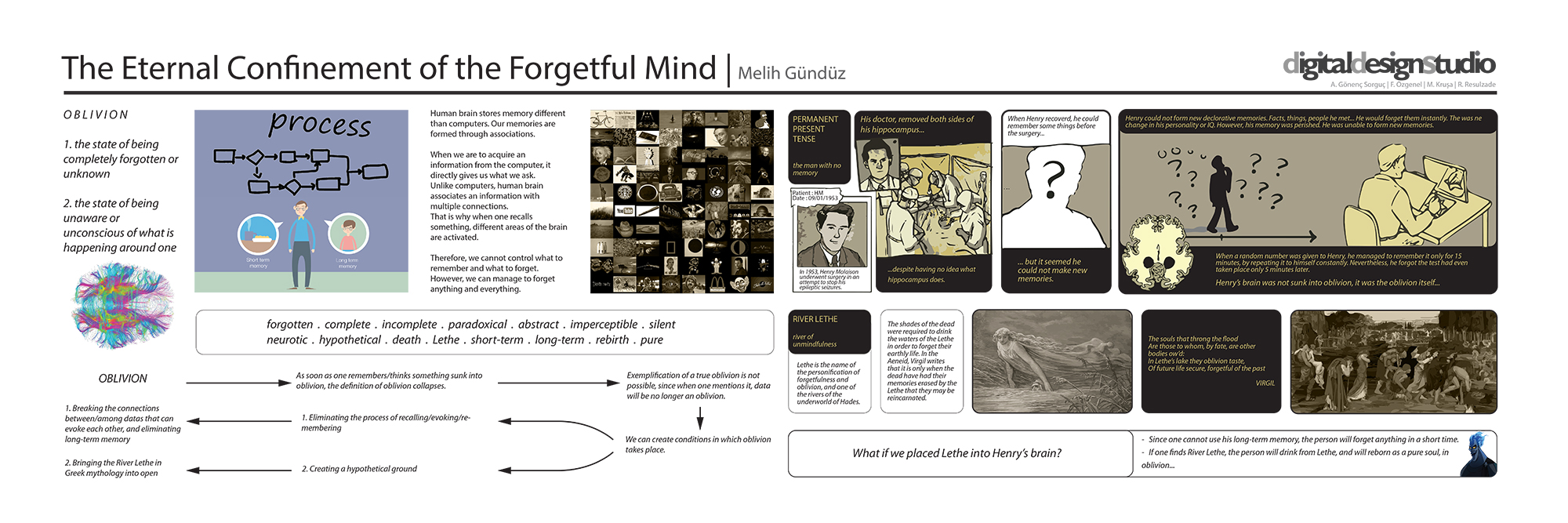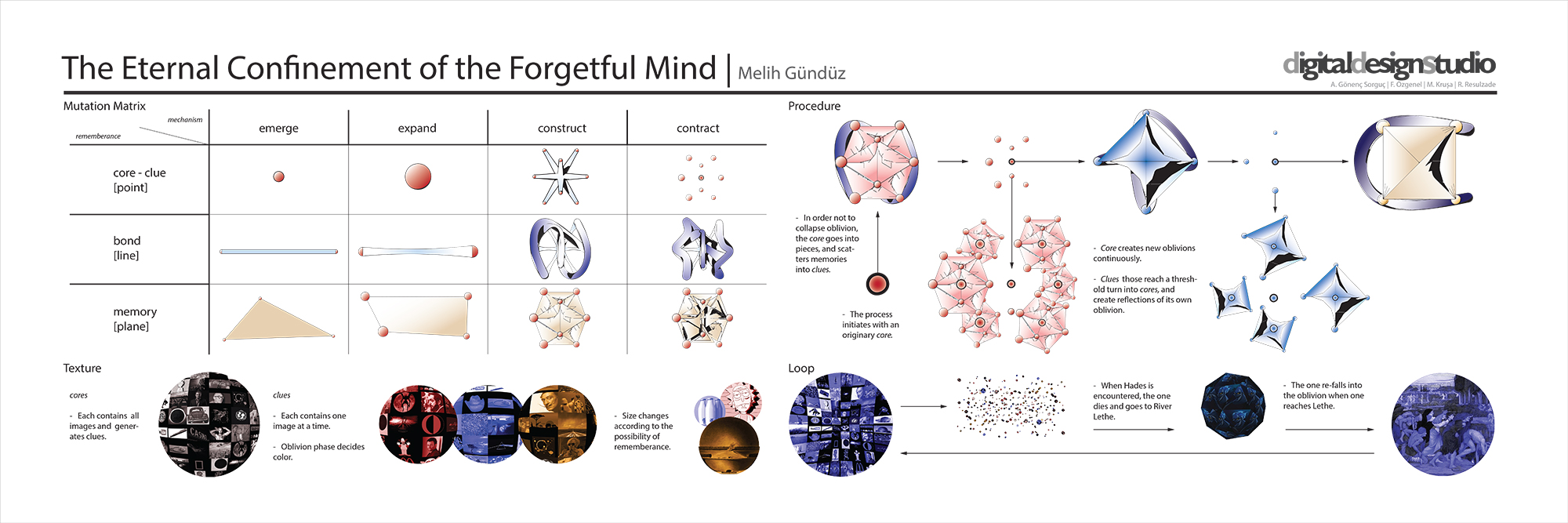Melih Gündüz
2017 Fall
ARCH470 Digital Design Studio
Human brain stores memory different than computers. Our memories are formed through associations. Unlike computers, human brain associates an information with multiple connections. Therefore, we cannot control what to remember and what to forget. However, we can manage to forget anything and everything at a time.
Oblivion, as a dictionary definition, means the state of being completely forgotten or unknown. As soon as one remembers a detail, clue, information about oblivion, the state of oblivion collapses. Therefore, we can talk about the existence of oblivion, but we cannot give an example to it. We cannot exemplify oblivion, but we can create the conditions in which oblivion will take place.
There are two ways in which oblivion can occur. One is neurotic, the other is hypothetical.
The first option is that we eliminate the process of remembering/recalling. If a memory does not reach long-term memory, it will be forgotten in a short period of time. Removal of the hippocampus in the brain is a way to do that.
The second option is that we can hypothetically bring Lethe into existence. In Greek mythology, Lethe is the river where deads go and drink from it, to forget the past and start a new life.
Rather than one, combining two ways creates an absolute oblivion. Lethe is placed in a brain that does not have a hippocampus. The one will be trapped in the mind. He will escape from the memories. If he sees Lethe or Hades, who controls the underworld, the person will go to Rive Lethe. He will be reborn, having forgotten everything from his past. Oblivion will restart. If not, he will be stuck among clues, not remembering anything longer than seconds. One will be again trapped in oblivion.
The mind will be confined within the forgetful mind to eternity.






